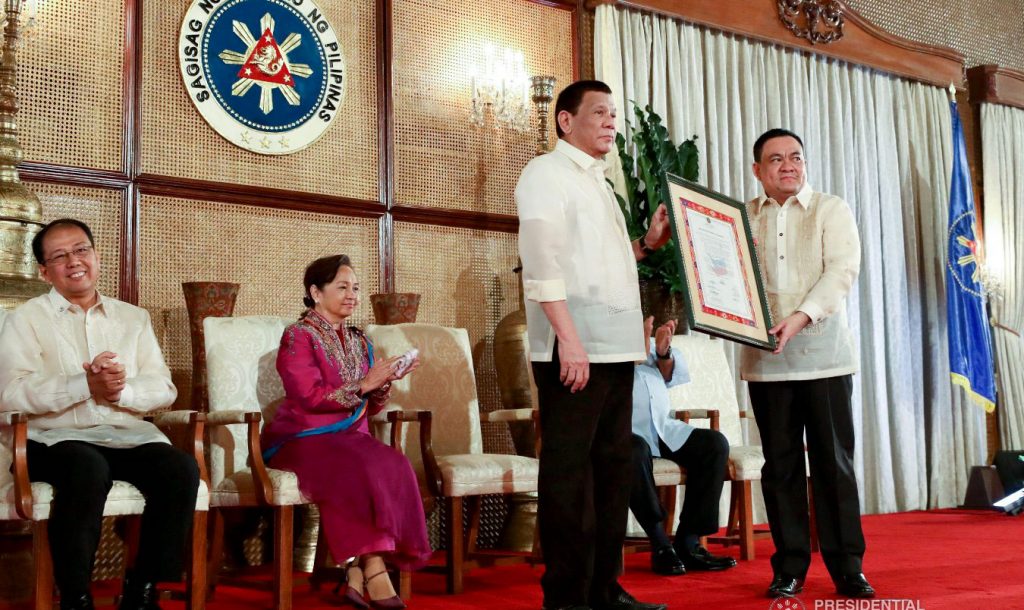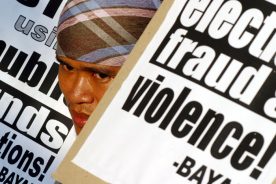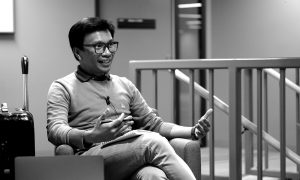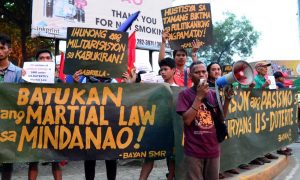The year 2019 marked a new era of peace in Southern Philippines. After decades of shoot-and-talk struggle between the government and the Moro Islamic Liberation Front (MILF), 1.6 million people voted to be part of the Bangsamoro Autonomous Region of Muslim Mindanao (BARMM).
BARMM replaces what is described as the “failed experiment” of the Autonomous Region of Muslim Mindanao (ARMM). This new geopolitical entity is granted with fiscal autonomy and political structure and is empowered to enact and implement its own laws. Through this governance arrangement, the Bangsamoro people are given autonomy to break away from their history of being treated as second-class citizens in their own country.
BARMM holds many promises but it also poses numerous uncertainties. Social fragmentation, patronage politics and insecurity caused by internal displacement and traumas caused by war are some of the challenges the region continues to face.
The crucial year for BARMM is 2022—the time when the region holds its first regular elections. But the 2019 midterm election is no less significant, as it sets the tone for the kind of politics BARMM will experience in the coming years.
On May 13, citizens in BARMM are voting for municipal officials in their respective local government units, including the cities, municipalities and provincial government units. The regional government officials are not yet up for elections, as they are currently filled by the appointed members of the Bangsamoro Transition Authority (BTA), who will be serving for a 3-year interim period until the regular elections in 2022.
Here are three key issues worth monitoring as the campaign season unfolds.
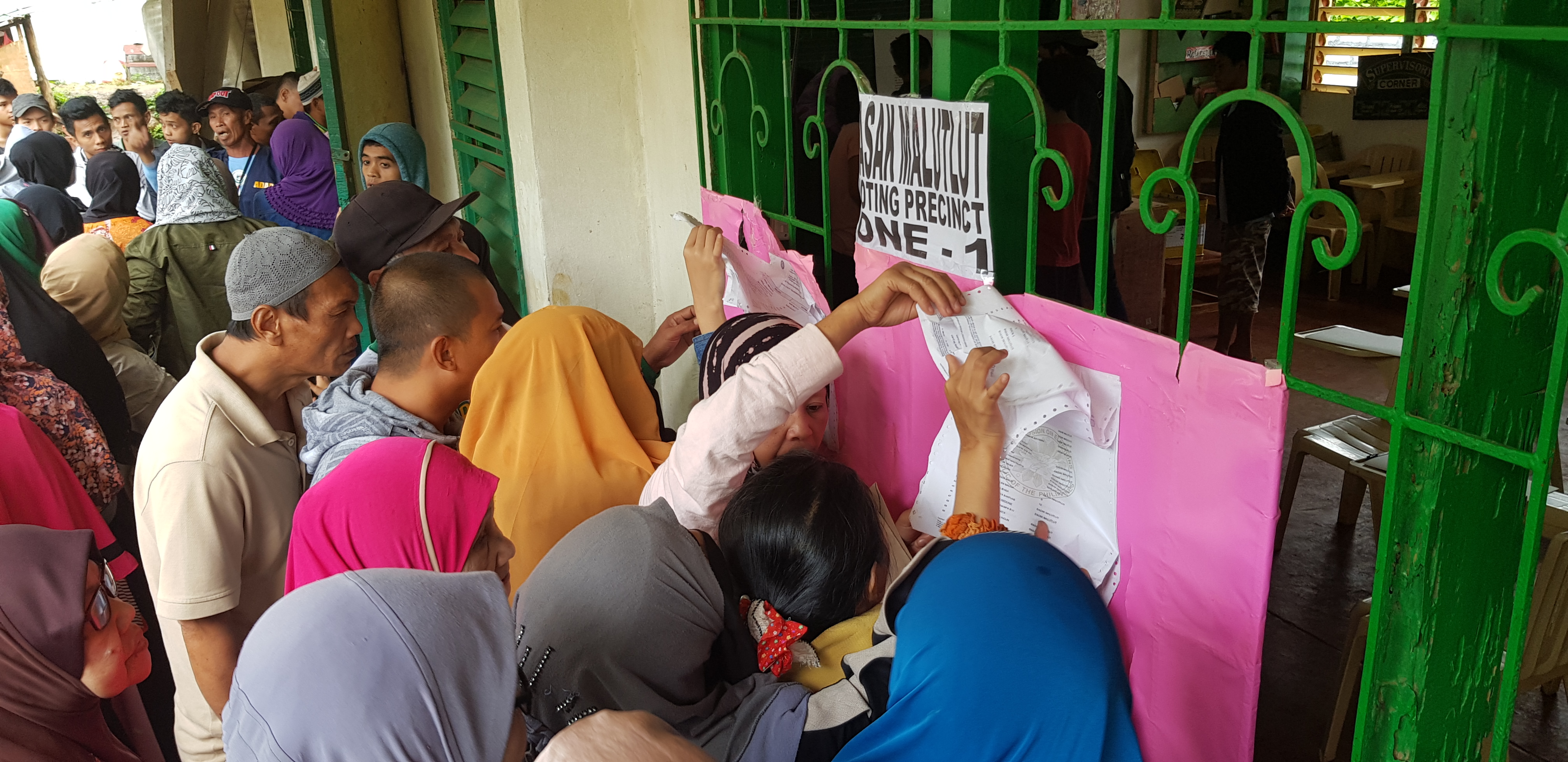
Voters in Marawi City for the Bangsamoro Organic Law plebiscite. (Photo: Def Luczon)
Building political parties
First, BARMM is faced with the task of building political parties that can capture the diverse histories, interests, and claims of the Bangsamoro.
The restive region of Southern Philippines knows the experience of social fragmentation well.
Far from being a homogenous entity, the Bangsamoro is comprised of thirteen ethnolinguistic groups, with each group carrying their own cultures and histories of struggle.
Ethnic dynamics have been a weakness in the Bangsamoro liberation movement. Julkipli Wadi of the Institute of Islamic Studies at the University of the Philippines points out that ethnic nationalism within the Bangsamoro movement is a continued challenge in the revolutionary struggle of the Moro National Liberation Front (MNLF) vis-à-vis the context of patronage.
Some Moro leaders, for example, decry the “tyranny of the MILF” in the MILF-led Bangsamoro Transition Authority, leaving other Moro groups such as the Moro National Liberation Front disenfranchised in this transition period before the 2022 elections.
This issue is consistent with the observation that the Bangsamoro identity is politically relevant in getting the attention of the Philippine government and international community, but in everyday practice these bonds are weak. Individuals see themselves as members of clans or ethnic groups first, and of the Bangsamoro second.
Recent studies, however, challenge this view. Markers of identity are not static but are dynamic and dependent on context. A survey conducted by the Institute of Philippine Culture found that Muslims strongly identify with their religious identity over their ethnopolitical associations. “While ethnic identity fragments, religion unifies” the study argues. This research finds hope in establishing a common Moro identity for peace building, while also recognising the power relations between dominant and subordinate ethnopolitical groups.
What do these complex social relations mean for building a political community?
Building credible political parties is crucial. Political parties can serve as space for the Bangsamoro to construct, deliberate and reflect on their visions for the region. The shift to a ministerial form of government means that political power in BARMM rests on parties which can institutionalise programmatic politics. This also means that ethnic coalitions forged along party lines provide an incentive for cooperation.
Political parties in the BARMM, particularly the MILF-United Bangsamoro Justice Party (UBJP), have been instrumental in winning the yes votes during the Bangsamoro Organic Law plebiscites. But they are also challenged in terms of multi-ethnic representation in the Maguindanaon-led party for mustering enough votes to secure seats in the Bangsamoro parliament.
Moreover, as coalition governments are the norm rather than the exception in parliamentary forms of governments, the case of the Bangsamoro demonstrates that ethnic-based parties have to form some sort of rainbow coalition in order to work for the much needed socio-economic and political reform in the region.
Thus far, there are many challenges to party building. The deeply entrenched power of political dynasties is difficult to break. Political clans have long been allies of the state, as they presented an alternative to reform-minded movements like the MILF who demanded substantial power and authority.
The 2019 midterm race exemplifies this challenge. This will be a test case on whether the presidential daughter, Sara Duterte, can continue her rise to power by capitalising on the popularity of his father—the first President of the Philippines from Mindanao.
National Parties will still dominate the political landscape with Duterte’s party PDP-Laban, and the opposition, Liberal Party (LP) and the NP (Nacionalista Party), as well as the Hugpong Party headed by Sara Duterte.
Meanwhile, existing parties are possibly mobilising for the midterm elections to support their candidates including Party List groups such as Anak Mindanao (AMIN), Suara Bangsamoro and Ang Laban ng Indigong Pilipino.
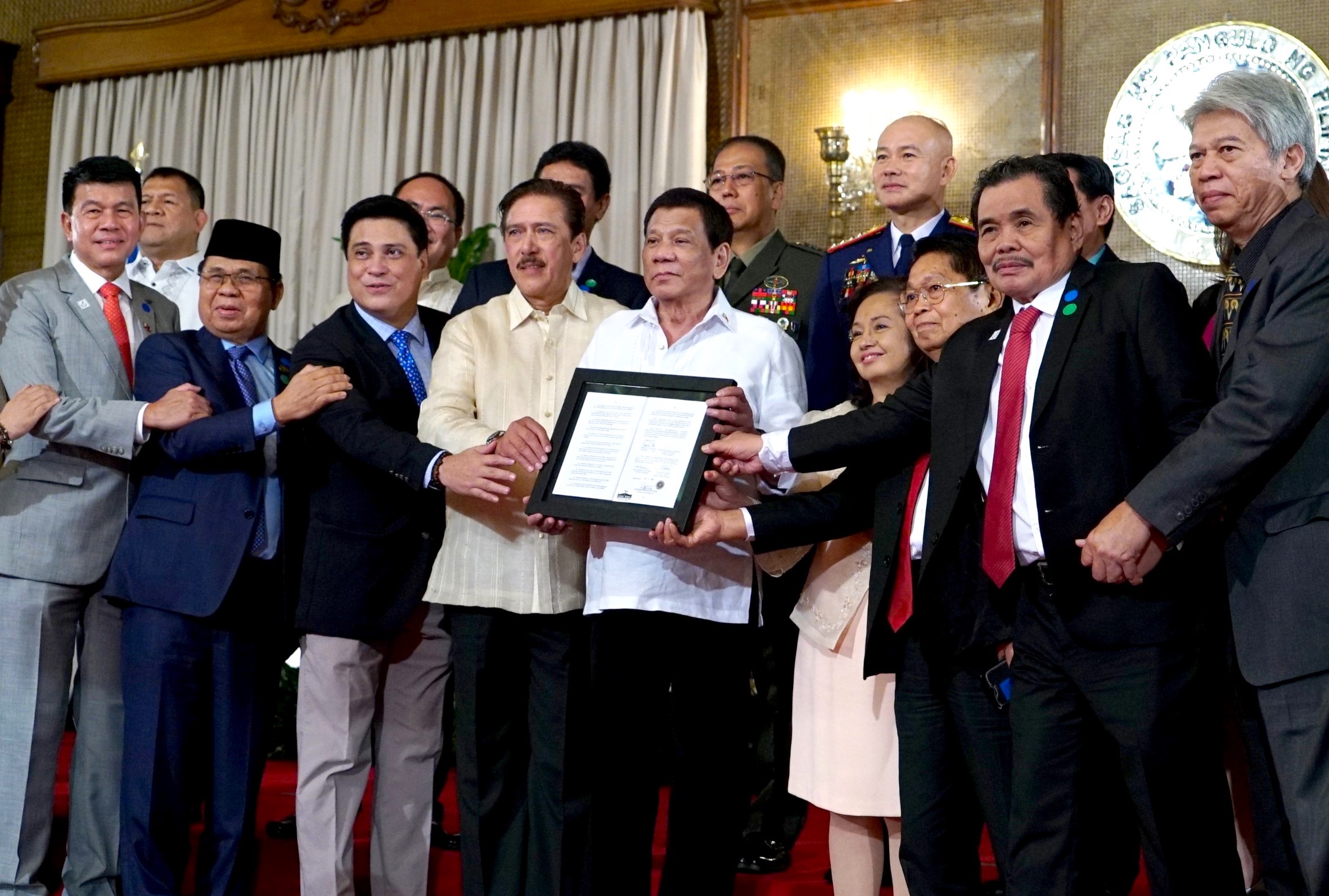
President Rodrigo R. Duterte and negotiators alongside the Moro Islamic Liberation Front during a presentation on Bangsamoro Organic Law, August 6, 2018. (Photo: King Rodriguez)
Creating spaces for participation
BARMM presents no guarantee that dominant political families will give way to genuine efforts of party-building. It is important that building political parties and institutions of the Bangsamoro are not left for the leaders to create, but rather they encourage the participation of the Moro populace.
The Bangsamoro project is self-limiting if the people are only involved during plebiscites, and unheard for the rest of the time. Peacebuilding demands participation because efforts at socio-political change, through inclusion of the broader interest of the people, will lead to a participatory, accountable and responsive governance process.
The gender and development agenda by Isis International for example, strengthens the participation of women in the process of building cohesive societies and good governance through sustained peace and engagements with civil society actors.
The Cotabato-based Institute for Autonomy and Local Governance (IAG) has been providing technical assistance to the MILF and partner civil society organisations, through the EU-funded DELACSE Bangsamoro with the end goal of developing programmatic-based politics with parties, rather than personalities and clans, as the vehicle of political power.
Preventing election-related violence
In the Philippines, political power rests on what International Alert Director Pancho Lara termed as “shadow economy”, where guns, goons and gold are necessary resources to stay in power.
Local politicians are able to maintain their bailiwicks by keeping the clans and warlords in control of their respective municipal posts. With the new political region, the joint peace and security team of the government and the MILF will be able to institutionalise an environment where armed groups will be dealt with through the rule of law, not the rule of force.
The “normalisation track” of the peace process has been in place since 2015, with the creation of the National Agency Task Force for the disbandment of private armed groups.
This subsequently decommissioned the MILF rebel groups and began a gradual phasing out of military troops deployed in Mindanao. Part of this track is decommissioning weapons from the MILF-Bangsamoro Islamic Armed Forces (BIAF), which is the largest Muslim armed group in the country. How these new arrangements will reduce cases of electoral violence remains to be seen.
Campaigning and killing: violence against politicians in the Southern Philippines
Data on killings reconfirm how pervasive electoral violence remains.
2019 is the rehearsal for 2022
The May 2019 midterm polls remain to be the game of the dominant political parties centred in Manila, but those who will be elected at the municipal posts belonging to the BARMM will take the greater challenge in striking a balance between the need to represent their local constituency on one hand, and the broader sector of the Bangsamoro regions, Moros and non-Moros alike, on another.
As stipulated in the Organic Law for the Bangsamoro, provincial governors and mayors of both cities and municipalities will form part of the Bangsamoro council of leaders, whose development agenda will have a much greater impact on the peace and security of their communities and governance in general.
Finally, the political exercise of suffrage must be coupled with conscientisation through continued engagement and deepening of experiential learning sessions with the Bangsamoro people.
Through it all, the Bangsamoro is an opportunity for a shared governance among the multipartite constituencies of the region including Moros, indigenous communities and the migrant communities, as they shape the future of an inclusive and democratic society that will bring about the desired socio-political and economic development in the region.
 Facebook
Facebook  Twitter
Twitter  Soundcloud
Soundcloud  Youtube
Youtube  Rss
Rss 